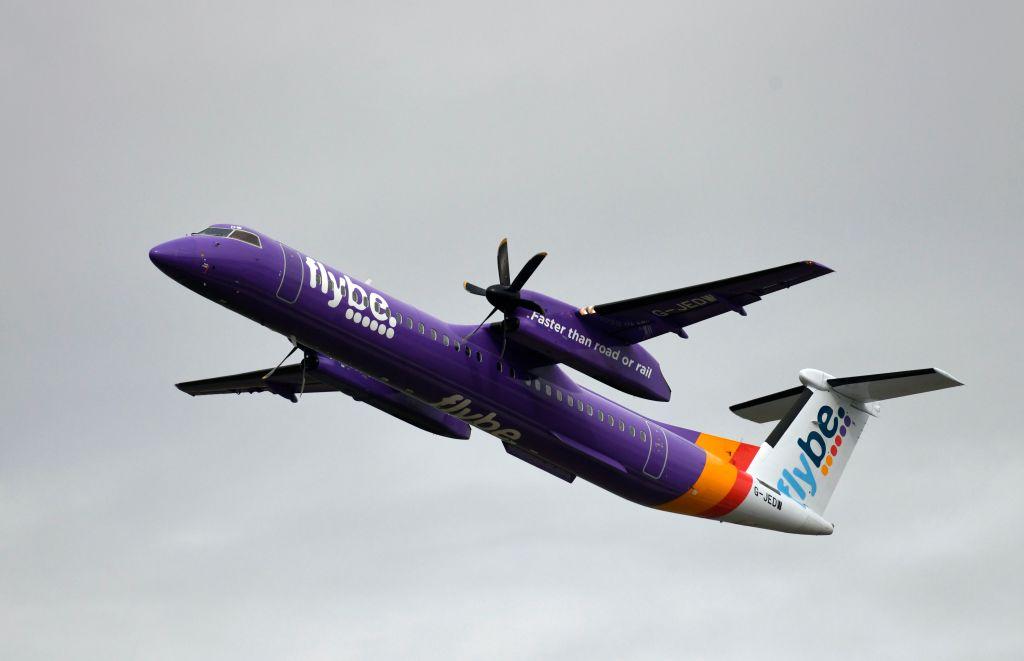Coronavirus: Axing flying tax won’t help crisis-hit airlines, but cutting passenger rights might
Plane Talk: The EU has relaxed airport slot rules, could passengers’ right be next?

Never waste a good crisis: as the airline industry experiences the deepest trauma in modern history, that business aphorism has never been more apt.
British Airways staff have been warned by their chief executive, Alex Cruz, that jobs will go and planes will be grounded during what he described as a “crisis of global proportions like no other we have known”. And if survival is touch and go for BA, part of the mighty IAG consortium, heaven knows how tough it must be for weaker players.
The response of the UK-based airlines has been to call for the suspension (or, better still, the abolition) of Air Passenger Duty (APD). I think it unlikely that a government under enormous financial pressure will surrender whatever revenue it might earn this year from the tax.
Instead, the airlines should focus their lobbying on the European Union, and specifically easing the onerous passengers’ rights rules known as EU261, which will continue to apply to the UK for the rest of the year.
This poorly drafted and eccentrically interpreted regulation, dating from 2004, imposes a duty of care on the airline to look after the disrupted traveller for as long as it takes to get them where they need to be.
Whatever the cause of a flight cancellation or a long delay, the carrier must provide meals and accommodation until the passenger can be flown to their destination. And that must be on a rival airline at the disrupted carrier’s expense, if it is the fastest way of getting them there.
The rules are far tougher than elsewhere in the world. They apply to all departures from EU airports, and to European carriers from anywhere in the world. Suppose a storm closes New York’s airports: American, Delta and United just tell passengers to find their own accommodation, while British Airways and Virgin Atlantic must provide hotels at great expense.
Some airlines fail to follow the rules to the letter, knowing that every customer who sleeps on the floor of an airport saves them money, and that any sanction from the regulators is unlikely.
Just last month, hundreds of Tui holidaymakers spent long nights at airports in the Canary Islands after a Saharan dust storm swept in.
But following the rules can cost airlines an open-ended fortune. A planeload of passengers stranded for a week (perhaps because of a coronavirus-related issue) could easily end up costing £100,000, leaving aside any knock-on disruption to the operation.
The rules are burdensome for airlines but a bonus for passengers. Perhaps the financial hit could be shared by the traveller and/or their insurance policy – for example by capping the accommodation element to just the initial night, and asking passengers to pay for their own meals just as they would do at home.
Those are just the rules that apply to passenger care. If the airline is to blame for the disruption, perhaps because of a mechanical problem or a staffing issue, then cash payouts begin. Each passenger can claim anywhere from €250 (£220) to €600 (£520), whether they are inconvenienced for a few hours or a few days.
These mandatory payments are appallingly calibrated: it is not clear why a passenger on a flight to Perth in Australia who touches down four hours late gets €600, while a traveller to Nice with the same delay is entitled to just €250.
I recommend that, for the summer season until the end of October, the compensation rules are suspended – just as Europe did with the “use it or lose it” slot rules.
Both Thomas Cook and Flybe had big structural problems that ultimately led to their failure. But it didn’t help that, in the months leading up to their collapses, they both had to pay out huge sums for operational disruption.
With airlines on the brink, passenger claims after a run of bad luck could conceivably push others over the edge.
There is one exception to suspending the rules: overbooking. If an airline seeks to benefit by selling more seats than there are available on the plane, and it guesses wrong about the number of no-shows, it should still pay out if it denies boarding to a ticketed passenger.
Anyone prepared to fly in these difficult times deserves compensation if they are forced to stay on the ground.
Join our commenting forum
Join thought-provoking conversations, follow other Independent readers and see their replies
Comments
Bookmark popover
Removed from bookmarks